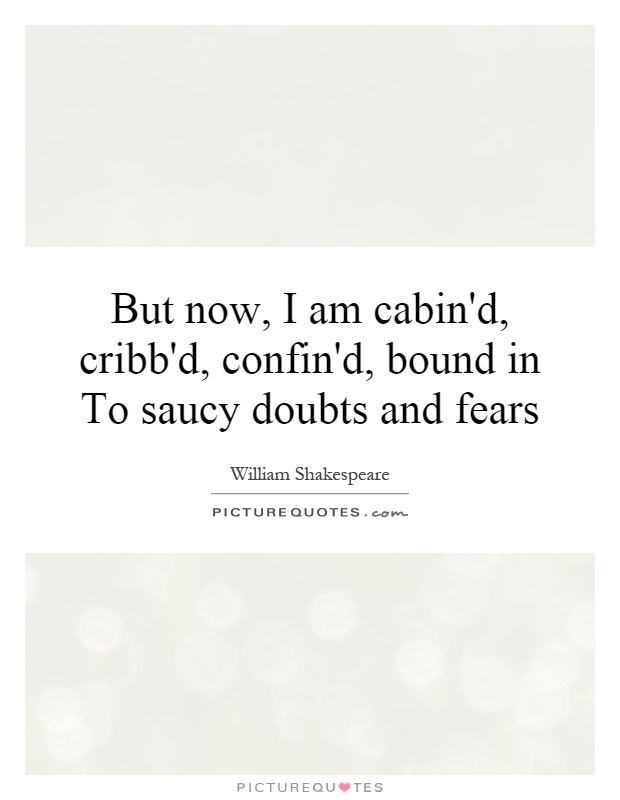But now, I am cabin'd, cribb'd, confin'd, bound in To saucy doubts and fears

But now, I am cabin'd, cribb'd, confin'd, bound in To saucy doubts and fears
The line "But now, I am cabin'd, cribb'd, confin'd, bound in To saucy doubts and fears" is from William Shakespeare's play Macbeth. In this line, Macbeth expresses his feelings of being trapped and confined by his own doubts and fears. This line is a reflection of Macbeth's internal struggle as he grapples with his ambition and the consequences of his actions.Throughout the play, Macbeth is consumed by his ambition to become king and is willing to do whatever it takes to achieve his goal. However, as he becomes more entrenched in his deceitful and murderous actions, he begins to feel the weight of his guilt and the fear of being discovered. This internal conflict is what leads Macbeth to feel "cabin'd, cribb'd, confin'd, bound in" by his doubts and fears.
The use of the words "cabin'd, cribb'd, confin'd, bound in" creates a sense of claustrophobia and entrapment, emphasizing the suffocating nature of Macbeth's internal turmoil. He feels trapped within his own mind, unable to escape the doubts and fears that plague him. This sense of confinement serves as a metaphor for the psychological prison that Macbeth finds himself in as he grapples with the consequences of his actions.
The word "saucy" in this line adds a layer of defiance and arrogance to Macbeth's feelings of doubt and fear. Despite his internal struggles, Macbeth still maintains a sense of pride and stubbornness, refusing to fully acknowledge the extent of his guilt. This arrogance ultimately leads to his downfall as he becomes increasingly isolated and paranoid.
Overall, this line from Macbeth encapsulates the complex and conflicted nature of the play's protagonist. Macbeth's internal struggles with ambition, guilt, and fear ultimately lead to his tragic demise, making this line a poignant reflection of his inner turmoil.












 Friendship Quotes
Friendship Quotes Love Quotes
Love Quotes Life Quotes
Life Quotes Funny Quotes
Funny Quotes Motivational Quotes
Motivational Quotes Inspirational Quotes
Inspirational Quotes